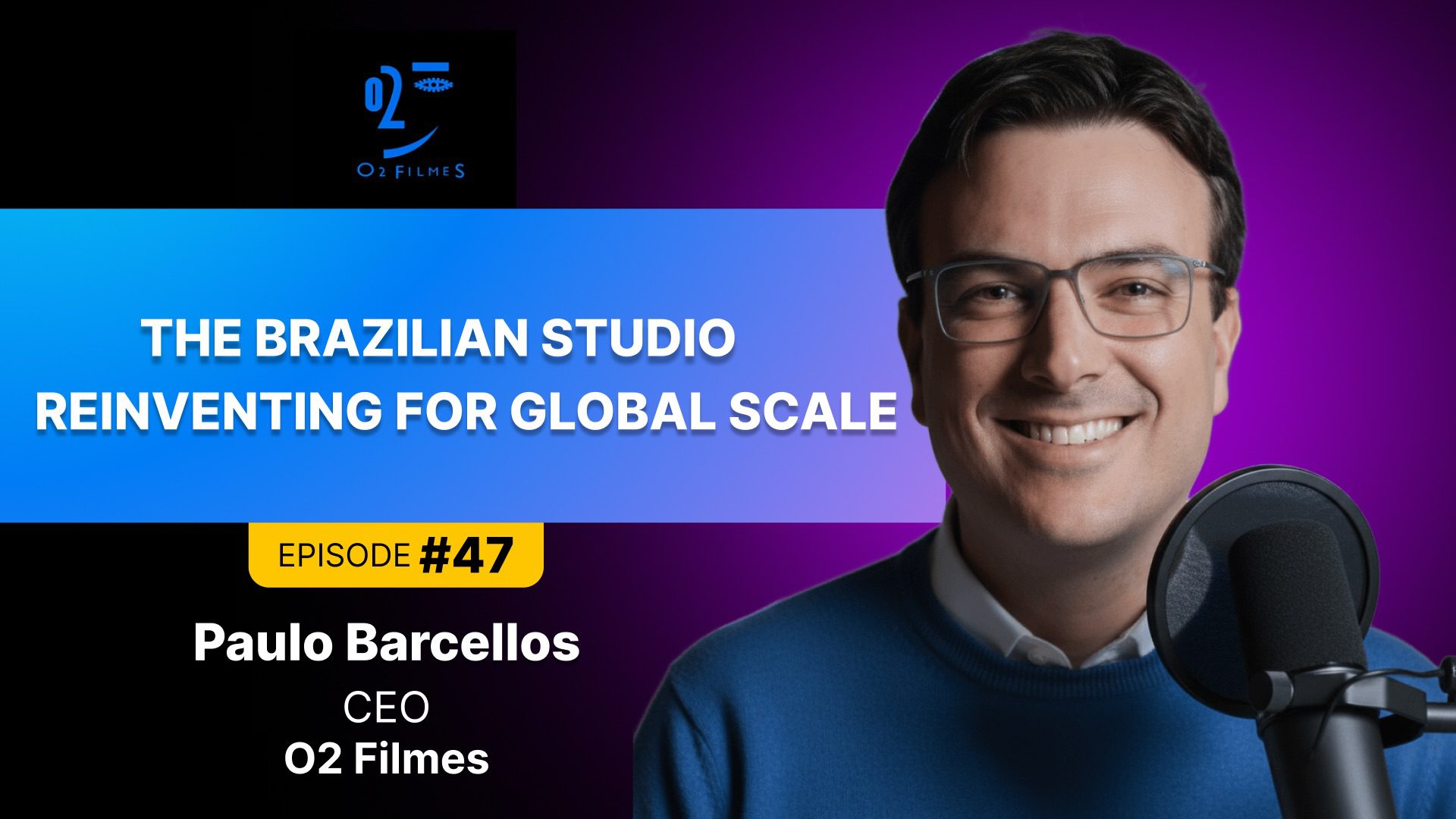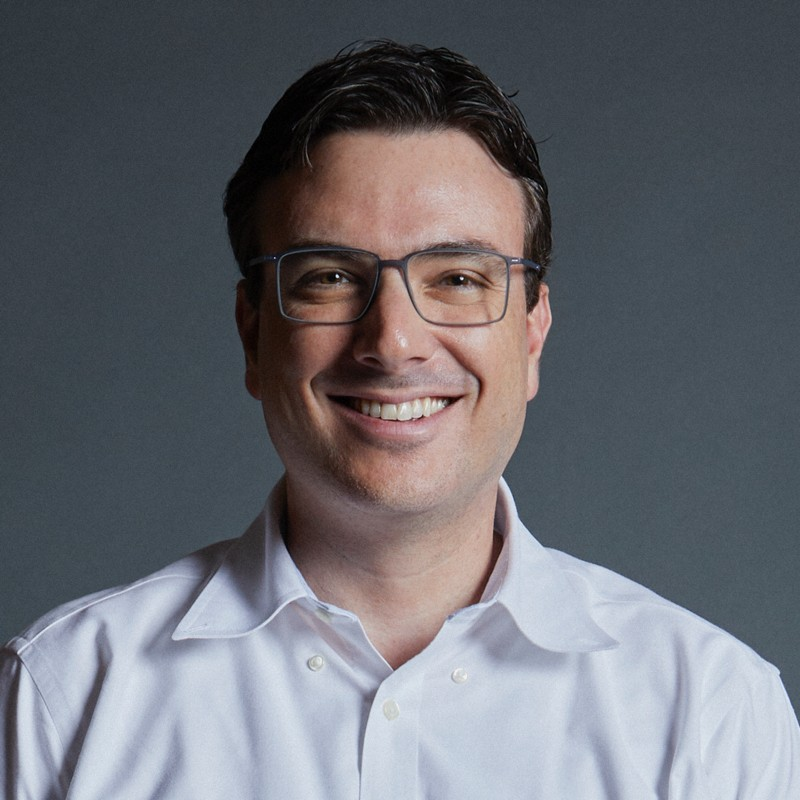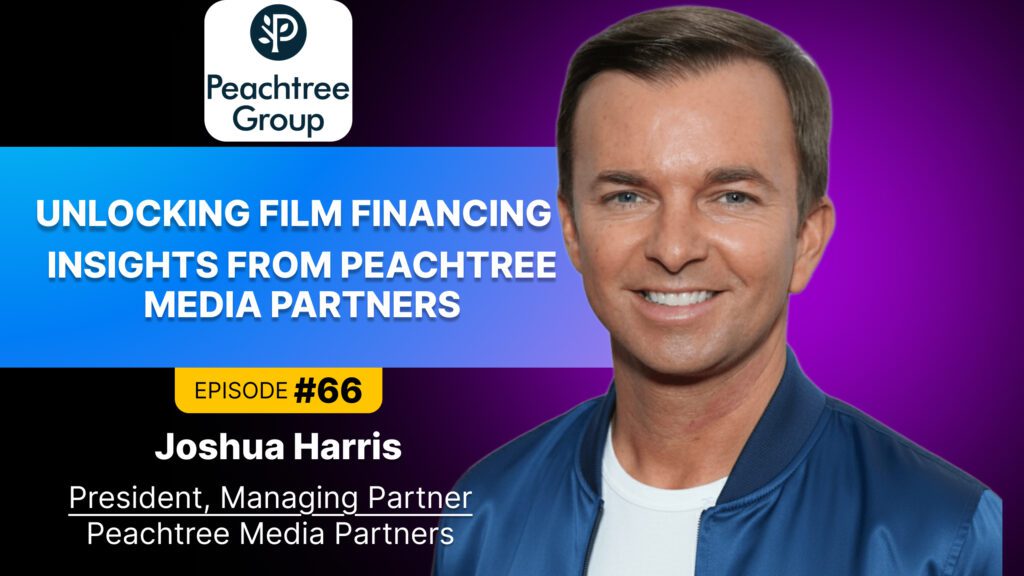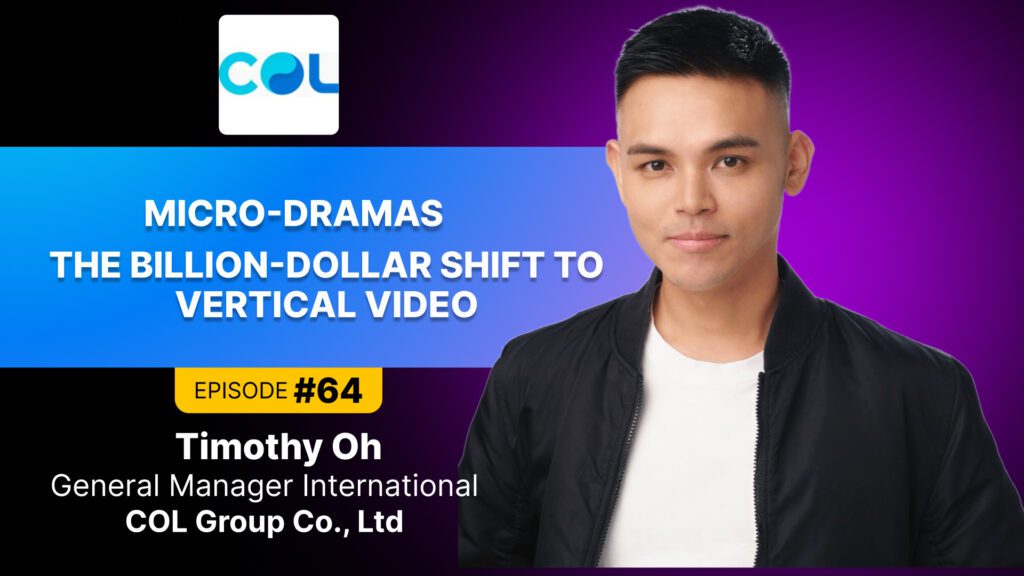We became this one-stop shop — advertising, entertainment, post-production, VFX, distribution, sound stages, grip, rentals. That’s very unique for Brazil. And the only way to control quality here is to verticalize.
Podcast Chapters
| Timestamp | Chapter Title |
| 00:00 | Introduction to O2 Filmes and the Brazilian Market |
| 14:37 | The Impact of Streaming Platforms on Brazilian Cinema |
| 18:47 | Exploring Original IP and Theatrical Releases |
| 24:33 | Monetization Strategies in a Changing Landscape |
| 26:23 | Budget Ranges and Project Scale in Brazilian Film |
| 37:33 | Distribution Focus and Market Insights |
| 40:11 | Future Outlook and Roadmap for O2 Filmes |
Almost 70% of our post-production revenue comes from other production companies — in Brazil and abroad, especially the U.S. and Mexico. So we’re built for international work.
Key Takeaways:
✅ Brazil’s production scene is booming, driven by global streamers and rising demand for premium content.
✅ O2 Filmes is a full-service studio, offering production, post, VFX, and distribution under one roof.
✅ Actively seeking co-productions, especially for theatrical IP with global appeal.
✅ Using AI to boost quality, enabling ambitious storytelling previously out of reach.
✅ Theatrical is resurging, with Brazilian audiences returning for standout, event-driven films.
Sound Bites:
🎧 “We’re open for co-productions — and Brazil has public grants that only unlock with international partners.”
🎧 “From $2M indies to $30M high-end features, we’re ready to scale — and push for global theatrical hits.”
🎧 “Most of our post-production revenue comes from external clients — including studios in the U.S. and Mexico.”
🎧 “We’ve moved beyond static pitch decks — we’re using AI to create cinematic trailers before the shoot.”
🎧 “Brazilian audiences want big, bold stories again — the theatrical market is back for the right films.”
About O2 Filmes
Why Partner With O2 Filmes?
✅ Full-Service Studio: Production, post, VFX, and distribution all under one roof.
✅ Proven Global Track Record: Trusted by Netflix, Prime Video, HBO Max, and more.
✅ Co-Production Friendly: Access to Brazilian public grants and local incentives.
✅ Scalable & High-Quality Output: From $2M indies to $30M features with international standards.
✅ Creative + Tech Edge: Pioneering use of AI for worldbuilding, pitch decks, and production workflows.
This is a written version of the Vitrina podcast, offering a concise Q&A transcript for a quick read on O2 Filmes and the Brazilian market.
O2 Filmes: A Deep Dive into Brazil’s Dynamic Production Landscape
1. Vitrina: Can you give us an overview of O2 Filmes, including its history and its various business lines?
Paulo Barcellos: O2 is a recently owned company. We’re going to be 35 next year. It started in the 90s, owned by three big players in Brazil. First one everybody knows is Fernando Morel, he’s the director of City of Gods. Second is André Barata Ribeiro, he’s producer. And Paulo Morel, another director who actually did City of Man. This company started as an advertising production company because back then in Brazil in the early 90s, there was no filmmaking industry the way we have today. So if you wanna work with film, you had to actually do advertising. And when the time arrived, we started doing entertainment. First, we did a couple of feature films, the small ones here as a kind of a workaround and tasks. And then the movie number three was City of Gods and everything changed for us when we made this film. And after that, O2 became a very big player in also entertainment. We started doing cable as well back then, a lot of TV shows. And back to 2010 or 11, we started O2 Posts, which was only a department inside O2 to take care of the post production of the jobs that the company had. But then in 2012, they hired me to open O2 posts to other companies as well. So it became an independent structure where today almost 70 % of revenue comes from other production companies, not O2. And then in 2014, O2 opened its distribution division, O2 Play, and we started releasing feature films in cinema, doing licensing deals, also to other companies, other production companies as well. And eventually we became this one-stop shop for anything you need, advertising, entertainment, post-production, visual effects, distribution. All of that, we ended up having also sound stages, equipment, grip, rental. So we became this one-stop shop, which is very unique for Brazil.
“We became this one-stop shop — production, post, VFX, distribution, equipment, and sound stages — because in Brazil, the way to control quality is to verticalize.”
2. Vitrina: Could you share details about your personal journey, particularly your transition from the creative and post-production side to leading O2 Filmes?
Paulo Barcellos: I was kind of lost actually. I loved technology. I loved graphics, CGI, stuff like that when I was young. And I got my first Mac when I was like 15 and it was pretty, pretty rare in Brazil. So I had to learn everything by myself. And that helped me a lot because I started working pretty young in a School that actually taught Photoshop, Illustrator, all these Adobe programs back then in the 90s. And because my knowledge of IT, for my own reasons, because I used a Mac and nobody could help me, I started working in IT companies and went to all the advertising agencies, sound companies, and then visual effects and production. So that’s how I made my way in visual effects. I started editing. Then I went to compositing. Then I went to 3D. Then I went to color grading. I started moving around, moving around up to the point that I reached where I understood that I was a manager. And I was happy being a manager. And after eight or nine years at O2 Post, I became CEO of the group, which was completely different areas as well.
“Almost 70% of our post-production revenue comes from external clients, including international productions from the U.S. and Mexico.”
3. Vitrina: You took on the role of leading O2 Filmes right after COVID. What were the challenges of stepping into this leadership position during such an uncertain time?
Paulo Barcellos: Yeah, yeah, and the timing couldn’t be better because I think COVID made everybody think about their lives, right? And I think the owners decided it was time for them to do a succession. And that’s how it happened. I think it wasn’t for COVID, maybe they would be here still and maybe I would still be at Old Suppose. But that helped speed its transition. In a third world country like Brazil, I love my country, but I have to acknowledge all the challenges that we also, we live every day, right? And you have to fix problems that doesn’t even exist elsewhere. So it’s hard for you when I go to give talks outside of Brazil, I have to this all pre-explanations of stuff because people wouldn’t understand. Why are you actually wasting so much time doing this instead of focusing on the job? And I always say this because Brazil makes everything so impossible that you have to be very creative in fixing problems. So I don’t suppose, for example, I couldn’t buy turnkey solutions. It’s very expensive for us. Brazil has a 100 % import taxes. So everything that you buy is a hundred percent taxes. So you have to try to get along with the cheapest equipment, the easiest equipment. You fix everything yourself. So that helped me a lot when I migrated to O2 Filmes and O2 Group, right? Because you have a different way of thinking about the problems.
“Streaming platforms changed everything — they didn’t just bring projects, they forced us to scale, professionalize, and build processes that raised the entire industry.”
4. Vitrina: How did O2 Filmes adapt to remote workflows and the shift to cloud-based post-production during COVID-19, and what were the challenges in Brazil during that period?
Paulo Barcellos: I, we couldn’t be more lucky. And when I say luck is because we were investigating this issue before COVID. One thing that I hated a lot was to have to be here on weekends or spend the nights at the work and deadlines, you know, especially with advertising. So we started investigating six, seven months before COVID, how to remote access the machines, how to create an environment where you don’t have to, it was not designed for people to work from home during the weekday, but it was designed for people who don’t have to come here on weekends, or they could leave by dinner and don’t have to come back and finish whatever they were doing at home. So by the time when COVID hit, I think that was three or four days. When everything closed down in Brazil, that was three or four days after we deployed the remote work solution. So we were so lucky with that because nobody was thinking about that, right? And then we applied that in a few machines, but then to scale that was easy. And then we end up in a week, we’re able to send everybody home.
“We’re now developing our own IP — but instead of chasing awards, our focus is on theatrical blockbusters with wide commercial appeal.”
5. Vitrina: O2 Filmes has established strong partnerships with major streaming platforms like Netflix, Globoplay, HBO Max, and Prime Video. How has the rise of streaming platforms impacted the filmmaking industry in Brazil, and what does 2025 look like for these partnerships?
Paulo Barcellos: Well, it’s also something else that we very, very lucky to begin with because what the streaming platforms have done to us in Brazil is such a blessing, you know, because before the platforms, before the streaming platforms were in Brazil, our filmmaking industry was very, very archaic. Everything very low budget, very restricted, very complicated. Then in 2018, Netflix arrived in Brazil and started ordering TV shows and feature films. And then after, I don’t know, a few months, Prime Video arrived. Then Disney +, then HBO Max, and Global Play was growing, and tried to compete with them as well. So we reached a part, a paradise in a way, where from 2019 to 20, well, that was the COVID part that we stopped for, I don’t know, maybe a year, but we started shooting after that, so it wasn’t very big of a gap. So by 2019 to 2022, we shot a lot and we had to learn how to scale, to become more professional, how to create processes and that helped us immensely. Most of what we do at O2 nowadays is commission.
“AI isn’t just about cost savings for us — it’s about unlocking the quality and scale that Brazilian stories need to compete globally.”
6. Vitrina: O2 Filmes is exploring an expansion into its own IP. What are your plans for original content, and what kind of projects are you focusing on, particularly in terms of theatrical releases and genre?
Paulo Barcellos: We’re starting to develop a new area where we’re going to do our OIPs. But it’s still very early because we need to crack this very well. It’s a risky business in a risky country and it’s complicated. Mainly theatrical. And I think we should, we’re seeing this completely change in theater adoption, right? But this year in Brazil, out of nowhere, we had I’m Still Here that made six million people, that took six million people to the movies. And in the same year, we had another comedy, which was a sequel from a comedy very in the early 2000s with Alto da Compadecida. And it did four million tickets. So I’m seeing this comeback of theater as an experience, as a special thing, as a program that you’re gonna do eventually. Those movies you’re gonna have to go to streaming directly. What makes them special? What happens? Well, why people go to see them? That’s why it attracts us so much.
“Brazil has public grants that only activate with international co-productions — that’s a real incentive for global partners looking to collaborate.”
7. Vitrina: Are you open to international co-productions, co-development, or co-financing for your original IPs? What kind of stories or partnerships are you looking for?
Paulo Barcellos: Awesome. co-productions always international co-productions are always great. There’s a lot of public grants in Brazil that it’s only enabled by international co-productions. So maybe you can have access to some money that we cannot without an international co-production. Brazil is I will say that in advance. Brazil is a very crazy country. So we don’t have any dates for the grants. It’s very hard for us to do international co-productions with partners because they expect a certain liability and a certain frequency and a certain timeline that we cannot provide to them. When we are taking money from abroad, when we are doing an international co-production where we are gonna receive money, it’s easier. But yeah, we’re looking now for IPs and partnerships, but focused on movies that can become hits and blockbusters. Because for the IP part, I think we should focus on not winning an Oscar, but winning millions and millions of tickets sold. We are trying to develop right now is this new road where we’re gonna do a lot of blockbusters and we will try to find a crack at that. So international co-productions can and we work a lot because Brazilians love to see other places. Or I love to see foreigners here. So any story that a foreign comes to Brazil or a Brazilian has to go to another country and face all the cultural challenges there, that will be amazing.
“We’re using AI to create pitch trailers and dynamic decks — testing audience reactions before we shoot, saving time and raising success rates.”
8. Vitrina: How do you approach monetization for your projects, and what are the primary channels for revenue generation in today’s market?
Paulo Barcellos: Yes, yes, unfortunately it’s not 2005 anymore when we had six, right? And nowadays it’s basically first window streaming that you have to try to do a pre-licensing deal to guarantee before you even shoot the movie that you have at least some percentage of the budget guaranteed. And in order to make it a hit in theaters, you have to invest a lot in P &A. So this is also something that we are being calibrating over the years with our distribution company to try to understand a little bit more. But of course, more is better, know, the more money you have. So that’s also some money that we have to account for when we’re doing this, because otherwise there won’t be a performing, well performing in theaters and all the other missing windows, the remaining windows of opportunity might not be able to, you know, pay for the whole thing. So that’s the biggest challenge.
“We’ve delivered $30M productions at international quality levels — and we know how to stretch resources to rival $100M U.S. budgets.”
9. Vitrina: What are the typical budget ranges for films produced by O2 Filmes, from low-budget to high-end productions?
Paulo Barcellos: Okay, what we had to, O2 is a little more high-end than many companies in Brazil. So I think what we consider at 02 a low budget movie, it will be anything around $2 million. So that would be for us a very, very low budget and a high-end production, something around $30 million.
“Theatrical isn’t dead. In Brazil, we’re seeing millions of tickets sold for local hits — audiences are returning for experiences, not just content.”
10. Vitrina: What genres does O2 Filmes gravitate towards as a production house, especially for commissioned work?
Paulo Barcellos: Nowadays as a production house, especially on the commission work, we do a lot of dramas, right? And high-end dramas. Last year we shot City of God, the TV show, season two. We shot New Bandit season two. We shot Irma Daji, which is a feature film that will finish a TV series that has two seasons. We also did Psyco, which is a TV show that we shot in the northeast of the country, in the north part of the country. Very inaccessible Amazon rainforest and stuff like that. And we also shot on a sci-fi movie called Animal Race, which is going to be released next year from Prime Video. So there’s a lot of projects that we do at the same time in different areas of the country. But mainly dramas, but animal race, it’s kind of a sci-fi.
“We’re actively looking for stories with international crossover — whether it’s a Brazilian character abroad, or a global narrative rooted here.”
11. Vitrina: How are awards and nominations perceived within O2 Filmes, and how do they impact the company, especially in terms of international opportunities?
Paulo Barcellos: Okay, yeah, the owners are very, very low profile in this case. They really don’t consider that to be a goal and only a consequence of hard work. So of course everybody’s happy, but it’s not something that we cheer a lot. I don’t know if Oscar nomination counts, four or five Oscar nominations. The nominations are great because it opens up a lot of international co-production opportunities. And back in the 2010s, we did a lot of work, international work.
“The nominations are great because it opens up a lot of international co-production opportunities.”
12. Vitrina: What are the current challenges and transformations in the post-production business, especially with the rise of AI and gaming engines, and how is O2 Filmes approaching these technological shifts?
Paulo Barcellos: Yeah, think it’s different. Mean, we’re going to see so much change, so much change. And I am obsessed with AI since I saw ChatDPT 2, think. I don’t know, before it was even popular. I spend a few hours a day on that, from researching stuff and checking new things and trying to come up with a, you know, an expectation of what’s gonna be like in two years, what’s gonna be like in three years. Think what I’m on right now, we are on a point where it’s not a question of if, it’s a question of when. So, and how can we keep being valuable, right? Because when you see something like VO3, we’re not only worried about post, you’re worried about production because are we going to use cameras in five years? And Will that remain relevant? Unfortunately, I don’t have answers for those things. But I can tell you that I am less worried now. Think the technology evolved in a way that I already know where are we going to be and how this is going to settle. So the first thing is, yes, it’s changing a lot, especially post. Rotoscoping. We have a partnership with some companies in India. We do a lot of rotoscoping in India. And we started this movie that I told you about, the sci-fi movie. And the first thing I asked my post guys is, We don’t have to do any rotoscoping this year, How come? Just do it with AI. So they went, they did it with AI, and they came back to me and they say, we need a human rotoscoping. It helps, it does a lot of stuff, but it’s not perfect. And by the time you start fixing it, it’s easier to come up and do it all over again. So yeah, so I couldn’t replace that, for example. Yes, I think it will happen, but it’s not this year, and maybe next year. So it’s it’s a gap between the hype and the reality when you try to actually apply these things in real life.
“It’s not a question of if, it’s a question of when.”
13. Vitrina: For O2 Filmes, is the primary goal with AI to save money, or is it more about enhancing the quality and enabling more ambitious storytelling given the Brazilian market context?
Paulo Barcellos: And you know why? Because maybe in the US is different, I we, I told you the budgets that we work with. Mean, $30 million as a top is good, but it’s nothing compared to what the US spent, right? I mean, we probably deliver something that has a value. If it was an American production that would have a value of a hundred million dollars, I’d say. So. Our challenge in Brazil is not to save money. Our challenge in Brazil is to raise the quality so we can compete with the American productions side by side. I want to be able to do a Brazilian Game of Thrones that probably somebody has written and put inside the drawer because there was no budget in Brazil possible to make it work. So what I’m very excited about AI right now is that I think before it creates savings for us. We have so much to go. We have so many stories to tell that we couldn’t afford. Then I think it’s going to enable us to do so much more. But in the US, maybe the case is like save money. Don’t But here for me, that’s why I changed so much. Because if I don’t have to spend money rotoscoping, I can do five more shots of the sea dried and do a drone shot there. So it’s more about raising the quality.
14. Vitrina: What is the main focus for O2 Play, your distribution business? Is it primarily focused on the Brazilian market, or are you aiming for international distribution as well?
Paulo Barcellos: Well, right now our main focus is in the Brazilian market, is to license Brazilian films. We do license a lot of international films as well. I think that helps us learn a lot. We licensed Megalopolis for Coppola. We brought Coppola to Brazil. And so we always have international movies because that helps us understand the market, understand pricing, because distribution is always about pricing, it varies so much.
“Right now our main focus is in the Brazilian market, is to license Brazilian films.”
15. Vitrina: What is the outlook and roadmap for O2 Filmes and the Brazilian market over the next few quarters, particularly regarding production schedules and the influence of AI on project development and sales?
Paulo Barcellos: Well, we are booked until 2028 with the upcoming productions. Mean, maybe there was going to be one or two more that will come up, but we still have a long roadmap ahead, thank God. And that is exciting because when you crack a show, you have second season, third season. So that helps us plan a little better. So what I bet it’s going to happen in the upcoming quarters is that our quality will still go up because of the AI advantage. We doing a lot of work in, in creating a world, world building with AI and stuff that will help us sell, the projects a little bit more. Think the biggest thing that changed for us was the books, the, the, the, the, the pitch decks are not static anymore. They are now movies. Then you can do fake trailers with AI and measuring people like the movie or not before you even shoot it.





 Sao Paulo, Brazil
Sao Paulo, Brazil




